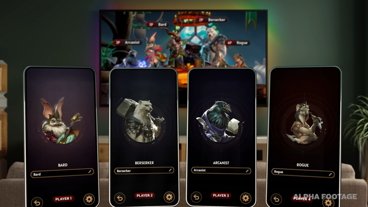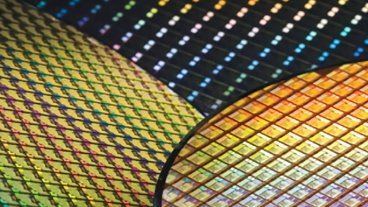The iPhone 17 and other late 2025 Apple devices will feature the company's own Wi-Fi 7 chips as part of a longterm move away from third-party suppliers.
It's long been documented that Apple is working to replace Qualcomm's 5G modems with its own design, but now a new report says it's doing the same with Wi-Fi. Previously, it was rumored that Apple was aiming to drop Broadcom's Wi-Fi processors, but now analyst Ming-Chi Kuo says it will happen with the iPhone 17.
Broadcom currently supplies over 300 million Wi-Fi+BT chips (hereafter referred to as Wi-Fi chips) per year to Apple. However, Apple will rapidly reduce its reliance on Broadcom. With new products in 2H25 (e.g., iPhone 17), Apple plans to use its own Wi-Fi chips, which will be
— (Ming-Chi Kuo) (@mingchikuo) October 31, 2024
Unusually, Kuo has only tweeted this news instead of also preparing a more detailed blog post. Partly because of that, it's not clear whether this news is Kuo's supposition, or is based on information from his industry sources.
The full tweet, though, does continue with a little more detail. As well as saying the iPhone 17 will get the Apple-designed Wi-Fi chips in 2025, Kuo says the processors will be Wi-Fi 7.
Kuo also says that the chips will be made by TSMC with its N7 or 7-nanometer process.
What's more, Apple is reportedly confident enough in its Wi-Fi 7 design that it "expects to move nearly all products to in-house Wi-Fi chips within about three years." Kuo does not explain why some products will not get Apple-designed Wi-Fi chips.
It won't be, for instance, smaller devices like the Apple Watch, whose chassis would presumably might require a different design to Wi-Fi chips in the iPhone or iPad. That's because Apple has been using its own modem in that since 2019's Apple Watch Series 3.
Whatever devices Apple uses its own modems for, though, Kuo makes the obvious point that it will reduce costs. It will also, he says, "enhance Apple's ecosystem integration advantages."
Currently Apple uses Wi-Fi chips from Broadcom. From 2016 to 2023, the two firms were embroiled in a Wi-Fi patent dispute with Caltech.
 William Gallagher
William Gallagher







-m.jpg)






 Bon Adamson
Bon Adamson
 Marko Zivkovic
Marko Zivkovic
 Wesley Hilliard
Wesley Hilliard
 Amber Neely
Amber Neely

 Malcolm Owen
Malcolm Owen






-m.jpg)



6 Comments
This is a dilemma for me. I'm holding out for WiFi 7 before I replace my MBP (and hopefully that will include tandem OLED), but I'll also wait to see how good their WiFI 7 chipset is. The last thing I want is a buggy network card, and with all the decades I've spent with Apple I can't say that they have done WiFi, BT, or Ethernet better than anyone else. And their extended use of AppleTalk when Ethernet was the clearly superior standard is still on my mind, despite also acknowledging that I can't hold that Apple to the current Apple's standard. That said, when it comes to network communication I tend to stand back and let the dust settle before jumping in.
If true, Apple’s decision to move in house the Wi-Fi and the modem is the only path to achieving a miniaturized pair of Apple Vision glasses that resemble a regular pair of glasses, minus the bulk, and making you look like a cool Buddy Holly in the process.
Apple, do it and do it fast. Put good use of many skilled engineers Apple hired from Intel networking, Qualcomm, Broadcomm to build the best Wifi,BT,5G chips. Moreover, If Apple can quickly integrate WiFi 7, BT 6, 5G modem and more on A-series SOC, it gives better performance, less heat, less power consumption and more space for larger battery. All good,
Notionally, Apple's biggest advantage is that they can have their chips fabbed on more advance nodes (TSMC 7nm, 5nm, 4nm, 3nm, etc) than Broadcom or Qualcomm. So power efficiency.
Power efficiency and reliable data connections are biggest things people appreciate. It's not bandwidth. They don't need to compete on bandwidth. It's power efficiency and continuous data connections. It's more important to a reliable signal than to have the fastest data connection. I hope these two features are what they think are their advantages for bringing wireless chips in-house.
On a related note, Apple seems to have re-upped their investment in GlobalStar, even has become a minority owner, and that is one of the last great additions to phones. The ability to always have a data connection is a big feature. If they can roll out satellite networking for all their machines, it would be awesome.
As long as Apple's implementation works I'm all in. As nice as the latest WiFi standards are, it takes a lot of time to fully take advantage of what they offer because there are so many nodes still locked into WiFi 4, WiFi 5, and now that WiFi 7 is the WiFi de jour, WiFi 6/6E. At the present time I don't own any devices that are WiFi 7 compatible. Even if I replaced all my access points, which is quite easy with my UniFi based setup, nothing I own would benefit from it. My #1 WiFi concern is 2.4 GHz congestion with neighbors who have their WiFi power set to 11 on all bands and WiFi 7 won't help that either.
There are still a lot of IoT devices out there that only work on 2.4 GHz. I am fortunate to have had the opportunity to install hardwired Ethernet with PoE throughout my house. For what I do and for where my bottlenecks exist, even 1 Gbps is perfectly fine. No interference, other than the normal Ethernet collision detection, but my network utilization is always very low outside of backups I run in the wee hours of the morning. But I still have 50 WiFi devices and none of them support the latest WiFi standard. About one-half are 2.4 GHz only.
It would be great if I could replace all of my 2.4 GHz devices, but that's not possible even if I throw money at the problem. I was elated to find out that my new Ecobee thermostat supports 5 GHz WiFi. Woo hoo. Maybe by 2028 there will be a critical mass of WiFi 7 devices available, but by then WiFi 7 will be eating the dust from whatever WiFi standard is at the top of the heap at that time. I suppose the good news is that Apple hasn't been trying to keep up with the pace of the availability of new standards. Apple's fairly slow pace of adoption doesn't affect me at all. Heck, the Apple Watch Ultra 2, even the newest black one, is still sporting WiFi 4. At least the newer WiFi standards are backward compatible. Your old devices and new devices designed around older WiFi support will still work, but you'll miss out on some of the benefits of the newer standards.